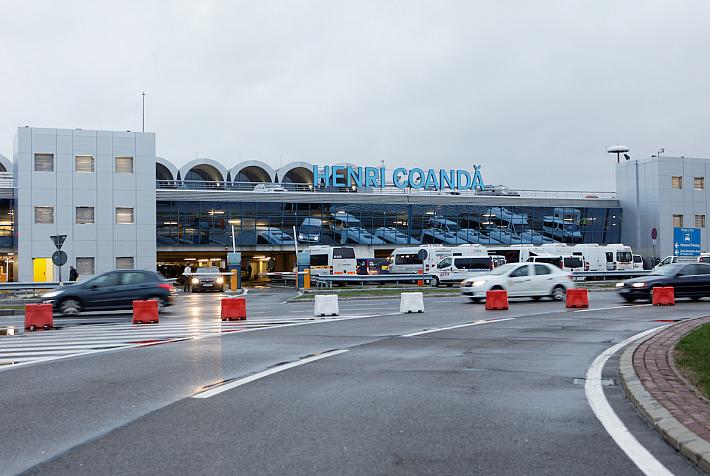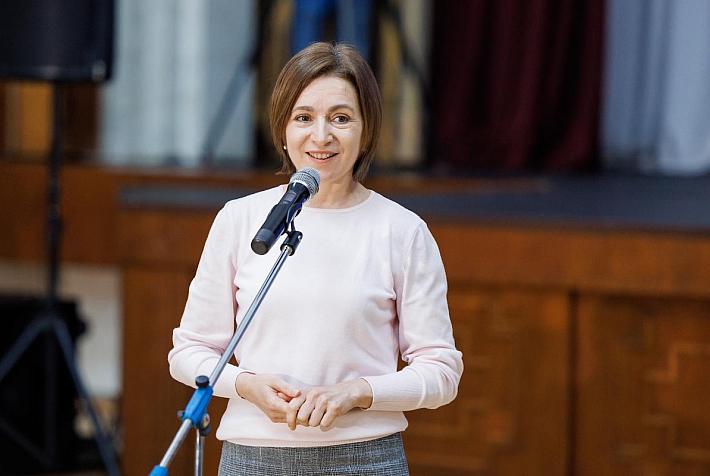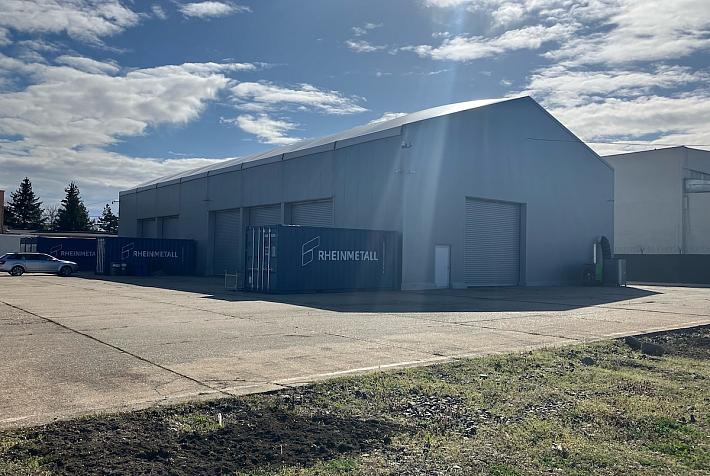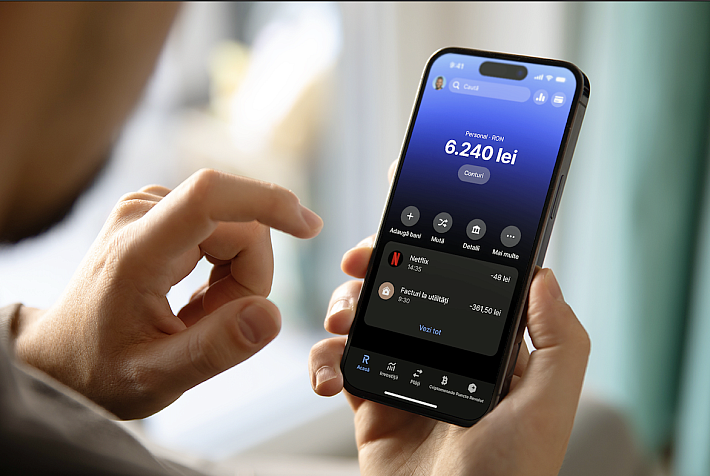Mathieu Gregori, founder Econos: The first step to sustainability is to measure your current status. You can’t improve what you don’t track

Sustainability is high on every company’s agenda these days as pressure from governments, regulators, investors, clients and society as a whole is pushing the business environment to adopt responsible business practices and minimize their negative impact on the environment. Mathieu Gregori, founder of ECONOS – one of the biggest consultancy companies on sustainability issues in Romania, talks about solutions to make businesses more sustainable.
“The definition of Sustainability has sensitively evolved in this last decade, becoming more and more concrete, precise and transparent. From an all-encompassing term that used to be applied anywhere - with its load of greenwashing - sustainability is becoming an auditable concept with objective criteria and clear KPIs,” says ECONOS founder Mathieu Gregori (in opening picture).
When it comes to making businesses more sustainable, he likens the process to that of starting a diet.
“The first step when embarking on a healthier journey is to measure your current status. For companies, this involves measuring their current carbon footprint, analyzing their supply chain, and identifying areas for improvement. You cannot improve what you don’t track. Understanding the baseline is essential for setting meaningful sustainability goals and creating a tailored strategy,” Gregori believes.
Read the full interview below:
What defines a sustainable company in your view? Has the definition of sustainability changed in the last 10 years?
Mathieu Gregori: I believe that the definition of Sustainability has sensitively evolved in this last decade, becoming more and more concrete, precise and transparent. From an all-encompassing term that used to be applied anywhere - with its load of greenwashing - sustainability is becoming an auditable concept with objective criteria and clear KPIs.
An important illustration of this evolution are the recent actions taken by the EU Commission to ban misleading terms such as "climate/carbon-neutral" and other green claims lacking credibility. This signifies that companies cannot simply make sustainability claims; they must substantiate these claims through concrete actions.
Which are the industries/business sectors that are faster to align to sustainability goals and which sectors are lagging?
Mathieu Gregori: A 2017 report by CDP revealed that 70% of global greenhouse gas emissions are produced by just 100 companies. Consequently, the primary focus should be on companies operating within industries characterized by high greenhouse gas emissions, as well as the financial institutions that provide funding to them.
- According to the International Energy Agency (IEA), energy production accounts for over 3/4 of the global greenhouse gas emissions. As a result, companies in the oil and gas and broader energy sectors are currently at the forefront of sustainability efforts. In the near future, the Environmental (E) aspects of the ESG (Environmental, Social, and Governance) framework will come under greater scrutiny, and oil and gas companies will need to demonstrate their sustainability commitments beyond their good social and governance criteria.
- Since April 2021, 134 leading global banks, representing over 41% of total global banking assets, have committed to the Net-Zero Banking Alliance. This initiative, launched by the UN Environment Programme, aims to engage banks in a global decarbonization journey and encourages the inclusion of ESG criteria when assessing potential clients.
That said, our modern economy operates within complex value chains where stakeholders are interconnected. The actions of these major sectors will have far-reaching consequences, affecting everything from small and medium-sized enterprises (SMEs) supplying the energy production industry to bank clients.
In your view, is it easier to build a sustainable company from the ground up or to transform a big corporation into a sustainable company (given that startups are more flexible but large companies have more resources)?
Mathieu Gregori: Both approaches have their advantages and challenges. Startups, such as ECONOS, have the advantage of being able to build sustainability into their core business model from the beginning, making it an integral part of their identity.
On the other hand, large corporations can exert significant influence when they commit to sustainability, impacting hundreds or even thousands of stakeholders through substantial budgets and extensive communication efforts.
Big corporations, with important means but established practices and complex hierarchy need flexible startups specializing in ESG to bring sustainable practices in their business models.
What is the first piece of advice you give to a company that seeks counseling to become more sustainable?
Mathieu Gregori: I often compare sustainability to a diet. Not a diet aimed at losing weight, but at making you healthier. A transformation that would allow your body and mind to feel better and last longer.
The first step when embarking on a healthier journey is to measure your current status. For companies, this involves measuring their current carbon footprint, analyzing their supply chain, and identifying areas for improvement. "If you don't measure it, you can't manage it”, as rightly said by our Greek partners from Net Zero Analytics (NZA). You cannot improve what you don’t track. Understanding the baseline is essential for setting meaningful sustainability goals and creating a tailored strategy.
Please give us an example of a sustainability initiative or project that you are working on and that you are particularly proud of.
Mathieu Gregori: In collaboration with leading advisory firms, under the leadership of Infocons, we have developed the first label aimed at certifying carbon footprint assessments in Romania: The Global Carbon Point (GCP). Given the recent concerns about greenwashing, this label seeks to bring scientific transparency to sustainability claims by mandating third-party verification audits conducted by a Scientific Committee comprised of experts in the field. After diligent assessment and auditing of the reported values, the committee either grants or withholds certification from the reporting client. These values are subsequently published on a public website and on a free mobile application, allowing consumers to make informed choices while considering ESG criteria. The Global Carbon Point objectively verifies greenhouse gas emissions generated by a product or a company, without relying on terms such as "carbon neutral" or "zero waste" to assess the results of carbon footprint evaluations.
In your view, do the new regulations help speed up or slow down the sustainability agenda?
Mathieu Gregori: New regulations can have both positive and negative impacts on the sustainability agenda. They can provide clarity, establish standards, and create a leveled playing field, encouraging companies to take action. This trend is obvious in regulations such as the SFDR, ESRS, and CBAM, which have prompted companies not traditionally associated with sustainability, to adapt their business models to meet new tax and regulatory requirements. However, for sustainability to truly succeed, it must not be seen as an additional reporting obligation. It is essential to understand the global objectives behind these new regulations: to reduce our GHG emissions. This is the reason why, in ECONOS, we tend to use mandatory reporting as an incentive to start our client’s sustainability journey rather than the final outcome.
Do you think companies in Romania need more government support in pursuing their sustainability goals and what kind of support would be needed?
Mathieu Gregori: Having had the opportunity to participate in several meetings, I have a deep appreciation for the work of the Department of Sustainable Development (DDD) in Romania, led by Laszlo Borbely. They are actively engaged in fostering communication and understanding of sustainability reporting. Following the German model, the DDD is currently developing the first public digital platform on which companies can publish their ESG data. I believe this is where government support is vital—highlighting exemplary performers in the field to inspire others to follow suit.
What external forces are currently playing the biggest role in pushing the sustainability agenda – clients, suppliers, financing institutions, investors, regulators?
Mathieu Gregori: It's interesting to observe how the balance between sustainability and profitability is reshaping our economy. This transformation is primarily driven by political and societal shifts that directly impact our economic landscape. It's remarkable how greenhouse gas emissions are intertwined with the economic development of specific regions, similarly to the saying, "Follow the money". In light of the escalating effects of climate change, regulators are taking a leading role in advancing the sustainability agenda, starting with reporting and transparency disclosures that directly affect the entire economy.
Can you give an example of a sustainability project in Romania (unrelated to your company) that you find particularly inspiring?
Mathieu Gregori: One inspiring sustainability project in Romania is the work done by CSR Nest, an NGO specialized in sustainability initiatives which organizes large-scale clean-up events to address environmental issues like litter and illegal waste dumping. They also work in cleaning rivers in several places, installing huge nets to collect the waste. These projects are just a few I have in mind from hundreds more they have been carrying out for several years now. One might say this is not a very objective point of view because we appear to be very good friends with Sergiu Sebesi, the founder of CSR Nest, but I do believe their work greatly contributes to the environmental protection of Romania.
Mathieu Gregori is a 25 year old Frenchman of Chinese and Vietnamese origin born in Hong Kong. He holds a Master's degree in Environmental Policy from the Paris School of International Affairs (PSIA) of Sciences Po, ranked 2nd in "Politics and International Studies" by the (QS) World University Rankings 2021.
His professional and academic experiences have brought him to work in different regions of the world (France, Romania, Israel, Cameroon, Mexico and Brazil), in several languages (Portuguese, English, French, Spanish, Romanian) in different sectors of activity that all have in common a strong interest in sustainable development.
In 2020, he founded ECONOS, an advisory firm specialized in supporting companies based in Romania in the decarbonization strategies of their business activities. Since then, he has been assisting numerous clients from the private and public sectors in the implementation of low-carbon strategies in line with the objectives of the Paris Agreement (COP21).
________________________
*This interview was edited by Romania Insider for ECONOS.












